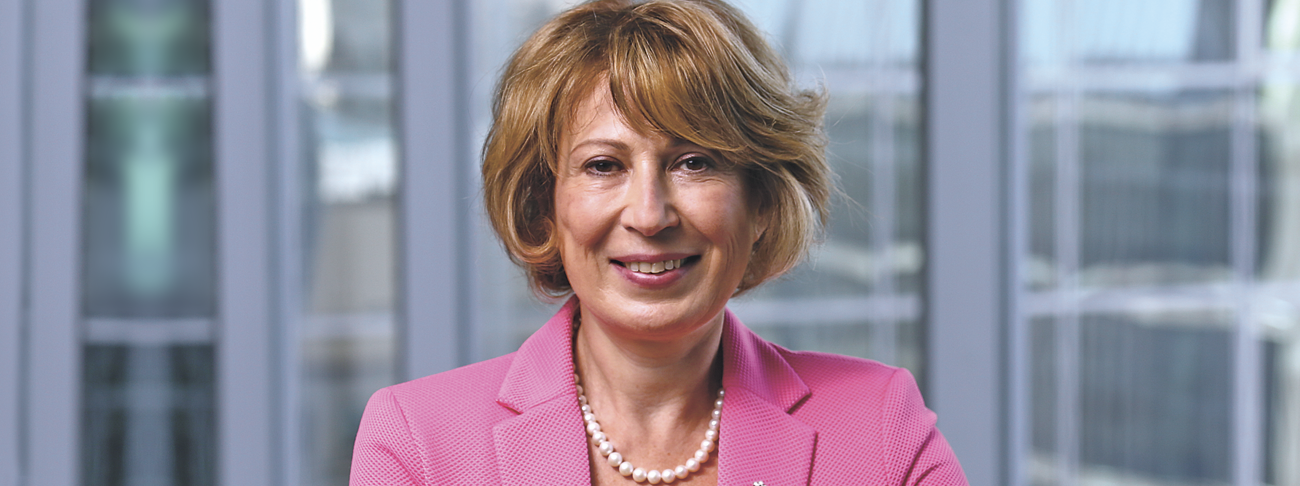
In September 2017 Mona Nemer, a cardiac researcher, and former University of Ottawa vice-president (research) was named Canada’s new Chief Science Advisor. The Bulletin spoke with Dr. Nemer about her new role.
Your mandate includes advising the federal government on how to ensure science is fully available to the public, that scientists are able to speak freely about their work, and that scientific analyses are considered when the government makes decisions. What are your priorities going forward?
I intend to carry out my mandate to the fullest in an open and transparent way. Specifically, I will be reviewing and recommending improvements to existing science advisory mechanisms in government, and recommending ways to strengthen the communication framework for government scientists. I know first hand how important this is to scientists and to Canadians alike. I also will champion open science to help facilitate public access to federal science, and develop whole-of-government scientific integrity guidelines. My December 2018 annual report will detail the activities of my office.
The report from Canada’s Fundamental Science Review calls for an increase of $1.3 billion in funding for basic research, and a better allocation of funding across the three federal research granting agencies. In your opinion, how critical are these proposed investments?
I agree that we need to strengthen investments in fundamental research to position Canada as a world-class destination for science. Having worked for many years in academia, I can say that the recommendations to strengthen support for early career researchers, efforts to strengthen equity and diversity, and driving multi-disciplinary and multinational research resonated with me. Research operates on a spectrum. I would like to see more balance between discovery research and applied research and more support for the mechanisms linking them.
Under the Conservatives, the Office of the National Science Advisor was shuttered, research libraries gutted and federal scientists “muzzled.” Given this history, and the attacks on science generally throughout the rest of the world, how important do you believe it is to “raise awareness of scientific issues relevant to the Canadian public” as per your mandate?
Science literacy is vital to a democratic society. Informed people make better decisions about their lives and therefore make better decisions that affect our society and our world. The Ontario Science Centre recently found that 43 per cent of Canadians surveyed believe science is a matter of opinion more than a matter of proven facts. Clearly we scientists have an important role to play, both inside and outside our labs. Ensuring that the public has access to science will create a more informed population that is better prepared to face the opportunities and challenges of the future.
CAUT applauded your appointment, but has also advocated for an independent Parliamentary Science Officer appointed by and accountable to Parliament, not to the government of the day, in order to ensure complete objectivity. Do you think this is necessary?
I have no data with which to assess the merits of a parliamentary science officer. I can, however, assure you of my own objectivity in providing scientific advice. That said, it is extremely important that parliamentarians be scientifically literate. The more scientific discourse that takes place in Parliament — and everywhere — the better the chances for improving scientific literacy. It’s important for scientists to engage in ongoing and constructive dialogue with decision-makers.
When you were growing up in Lebanon, you fought to be allowed to enter a science stream at school. The Naylor Report calls for improved equity and diversity in research programs and better support for Indigenous researchers. Why do you believe this is important?
Supporting diversity in science is one of the most important ways we can achieve equitable societies. As a woman in science, I have always advocated for science and the importance of recruiting and promoting women and underrepresented groups to science education and careers. I will continue to raise awareness and do my best to support my colleagues and researchers from underrepresented communities.
How do you envision moving forward on advancing equity and diversity?
Several things need to change in order to improve equity and diversity in our research programs: (1) Ensure that hiring and recognition criteria, metrics, policies and procedures reflect achievements, not positions held. Women and members of other underrepresented groups often have non-traditional career paths. Our recognition criteria need to reflect that. (2) Implement
programs and initiatives to support women with children, so they can stay active in their research. Science and family are not mutually exclusive for men; why should they be for women? (3) Provide mentorship programs and awards that raise the profile of women and underrepresented groups in science. Mentors and role models are vital in guiding personal and professional development, and are a great way of helping to diversify our research programs.